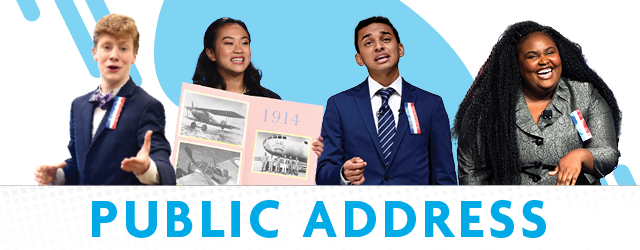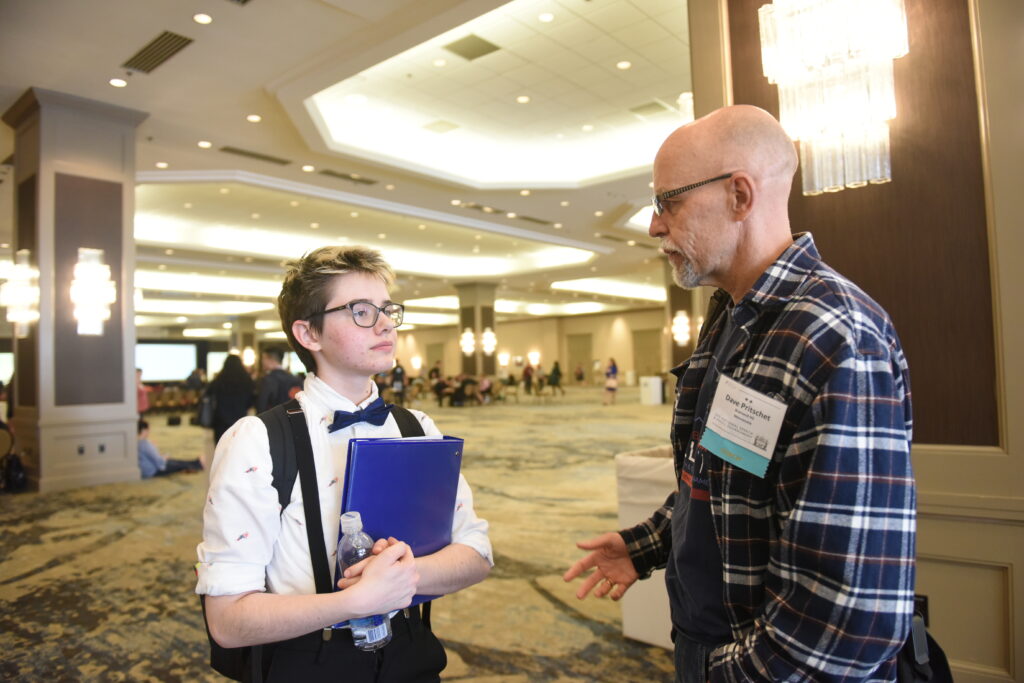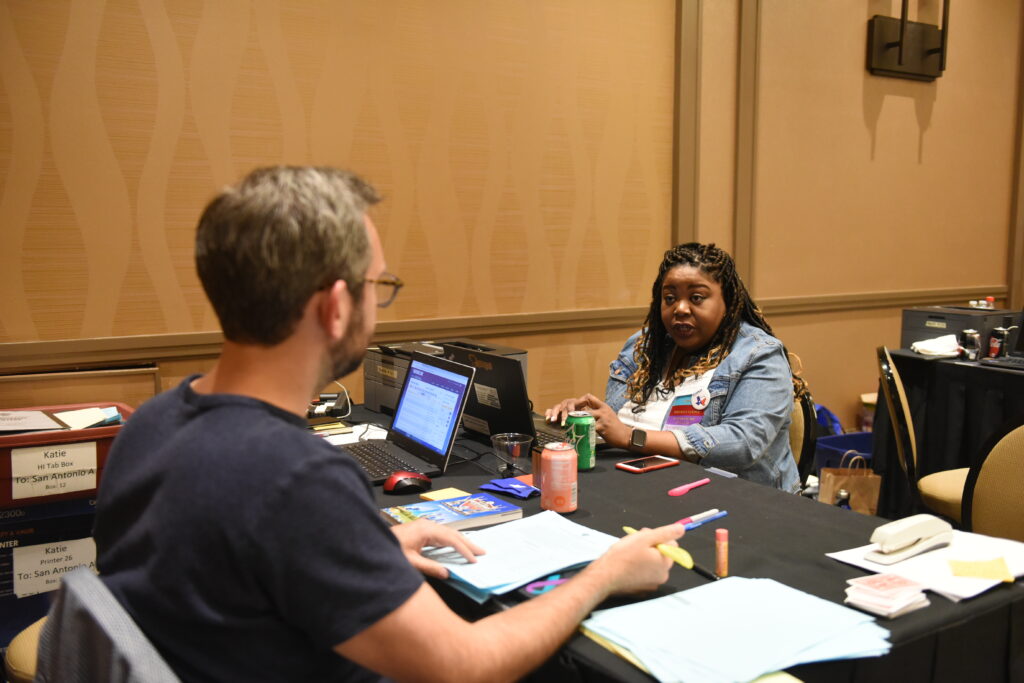How to Start a Team

ABOUT THE AUTHOR

I know firsthand how difficult it is to start a speech and debate team at a school without any support, and
I’m here to provide you with a step-by-step approach and helpful tips to help you do so.
Here’s a little bit more about me: I’ve been debating since seventh grade, both in and outside of school. I’ve mainly debated Public Forum, but I’ve dabbled in Parliamentary and World Schools Debate. I’m the president of my school’s student-run debate team, and I also founded my school’s debate team in ninth grade before transferring schools.
From my years of experience being involved in the speech and debate community, I know exactly what it takes to set up and run a speech and debate program. Here are the steps to start a team!
STUDENTS: CHECKLIST TO START YOUR TEAM
BACKGROUND
- If you’re entirely new to all things speech and debate, pause to learn about competitive events and the three main categories: debate, public address, and interpretation.
- Speech and debate is mainly a competition-based activity. This means that the things you do in terms of research or preparing and writing speeches are all with the intention of attending tournaments that are held locally and nationally.
- Tournaments are where competitors from either your local area or all over the country gather to participate in speech and debate with each other. It’s a great way to actually implement the skills you are learning in front of other people, but this also doesn’t mean that you’re always speaking in front of huge audiences. Often, speech and debate typically happens in smaller, controlled environments. You’re only in front of a couple of other people who are in the room with you at all times, so it’s a lot less intimidating than you might think. Learn more about attending your first tournament to take a peek into what that might look like.
- Competition and winning is a big part of speech and debate, but the most important part of what you gain from this activity doesn’t lie in competitive success: it’s the skills that you learn and the friendships that you make. If you go into speech and debate with less of a focus on winning, it will lend to a better experience for you in this activity.
- The National Speech & Debate Association (NSDA) is the governing body for speech and debate that many tournaments and organizations on the local, state, and national level follow. When you and your school become an NSDA member, you gain new benefits.
-
- The NSDA has an Honor Society, in which all student members are automatically included. As you gather points by competing, you can list it on college applications or your resume. Because the Honor Society is well-known, it puts your speech and debate participation in a context admissions offices understand and helps set you apart.
- The NSDA sets the national debate topics, and student members can vote to help select them or suggest future topics.
- You can improve your skills and find new practice tools from NSDA resources. New material comes out every month. My favorites are final round videos where you can watch past national champions compete, but there are also really helpful research guides and video breakdowns. Check out a selection of what’s available.
-
- The NSDA hosts an annual National Tournament. Students from all around the world come together to compete, and it’s a great way to learn from tough competition and meet new people. This past June, I had a blast at Nationals, getting to reunite with some of my friends after two years of online debating and also getting to make new friends from all over the country and the world!
STEPS
PART 1: Gather interest!
- Look toward your own inner circle to start. Gather a couple of friends to support you in your journey—it won’t be easy going through this on your own, and it’s always good to have someone by your side. Make sure they have an interest in speech and debate; here are some things you can show them to convince them to join you.
Join Speech
Find Your Platform
Join Debate
The Road to a Championship
- Decide what events you and others at your school might be interested in. Some events are easier to get into than others, but your interests might lie in a more complex but intriguing event. Regardless, it’s good to know what you’re interested in before you start planning. Read the following summaries for an overview or visit the Competition Events Guide for in-depth explanations.

Interpretation events tell stories. You’ll need to master your acting and theatrical skills in order to bring a story to life, understand what makes a story powerful, and how to move your judges to laughter or tears depending on your piece. If you’re expressive and love to perform, explore interpretation events.

Public address is meant to inform or persuade. If you like research and want to combine your love of information with a passion for educating others, you’ll want to explore public address events. There are also variations within: for example, Extemp gives you the thrill of speaking off the cuff about current events, while Oratory and Informative Speaking allow you to rehearse a thoughtfully written speech in front of an audience.

Debate is for those who want to combine research with argumentation. If you’re interested in philosophy, ethics, and reasoning, as well as topics such as economics, domestic and foreign policy, and more, explore debate further. Debate helps you improve your evidence gathering, writing, and speaking skills all at once.
PART 2: Do your research and start local!
Every speech and debate team is different, and it’s important that you don’t compare yourself to others. Look inward at your own situation and work from there. For example, some speech and debate programs have existed for decades, and they have heavy support from school administrations and several coaches that help their students. Others are completely student run, which means that students themselves handle everything from recruitment to teaching to registration and logistics operations.
What might work for someone else might not work for you in your school or region. Here are a few things that can help you customize your approach and make things easier for yourself throughout the process.
- Become familiar with the process of starting a club or a team at your school. For example, students at my school have to find a teacher advisor, fill out a form, and find members to recruit to start a club. This will help you map out a list of responsibilities that you’ll need to tackle. Stop in the main office and ask about requirements, or check with an activities or athletics director if your school has one.
- Find about the budgeting process for clubs or teams. Do students pay-to-play or are there school funds from the budget or PTA funds available? Again, start with the main office or check with an activities or athletics director if your school has one—they usually have answers.
- See if similar clubs exist at your own school. Model UN, Model Congress, and Mock Trial are some examples of activities that operate very similarly to speech and debate. If those clubs do exist, think about how speech and debate fits into that framework, especially in terms of logistics or feasibility. For example, National Speech & Debate Association member students can earn Honor Society points for Model UN and Mock Trial, so there’s a good opportunity for participation across clubs.
- Do some research into what resources are available in your local area. Check if your state and county have debate leagues and whether other schools in your school district have speech and debate teams that you can reach out to for guidance.
- To begin, contact the National Speech & Debate Association at info@speechanddebate.org or (920) 748-6206 with the location of your school and share that you are working to start a program. They can A) tell you if your school was ever a member in the past and B) connect you with a group of adults in your area, called district leaders, who organize local tournaments and help new programs get started. They can be important allies in your work of starting a program!
- A quick Google search along the lines of “[state/county] speech and debate league” is an easy way to find local resources. Check if your state has a league by exploring this page.
Starting locally has a couple of advantages. First, it’s easier to convince people at your school that a speech and debate program will work if your neighboring and rival schools have programs, too. Local-level competition is the easiest way to actually practice the skills you’ve learned, and it’s also a lot more cost effective compared to national competitions that require travel. Your district leaders or state organization can supply the information you need about opportunities in your area and may even be willing to send a note of support to your administrator!
Also, local district and state leaders are usually enthusiastic about gathering new members and expanding the speech and debate network locally. They can serve as helpful sources of advice and information about setting up your team and competing.
PART 3: Find a coach!
Most tournaments require registration and verification by a trusted adult from your school because of certain liabilities that they are hesitant to take on with just students. While it is possible, it is very difficult to start a team without the help of an adult. Thus, it is extremely important that you gain school support for your team, whether it be a teacher or an administrator who is willing to have you compete under the school’s name. National Speech & Debate Association membership is school-based, so approval from the school for the team is required.
Here are some options to consider when deciding which adult to approach.

SOMEONE YOU’RE CLOSE WITH
Identify a teacher with whom you have a strong personal relationship who is willing to support you in your extracurricular endeavors, even if it means that they will have to learn certain things or give up some time on the weekend to chaperone local tournaments.
SOMEONE WHO IS AN ALUM
Find a teacher who participated in speech and debate when they were in high school or college who would be willing to oversee the formation of a similar activity at your school.
SOMEONE WITH A SIMILAR INTEREST
Who you approach should depend on which events you expect your team to focus on—for example, a humanities teacher with interest in debate because of its intersections with philosophy and/or current events; an English teacher who likes the focus on writing in debate cases or in public address events; or a theater teacher who is excited by the opportunity to explore a new type of acting and bring a story to life. Regardless, teachers who think advising a speech and debate club will enhance their skills in the classroom and serve as a learning experience because of the subject they teach will be good bets.
SOMEONE WITH RELEVENT SKILLS
You can also expand your search if your administration doesn’t require the coach to be employed by the school. For example, a lawyer may be interested in coaching debate because of their love for research and argumentation. A local political figure may be taken with Congressional Debate. A motivational speaker could be enticed by public address events. A parent or family friend who is an alum may jump back in with you. Assess your network for connections!
A teacher does not have to play an extremely active role on the team—they may serve as a sponsor who is there to support you if you encounter any problems with logistical or administrative aspects of running a team. Having a student-run team is possible. If you can find an advisor with a certain skill set, that’s great—they can be a good resource for you to rely on. If you can’t, a teacher or administrator who cares about what you do is more than enough.
Once you do find a coach, you can refer them to this page or various other pages that will help give them a rundown of what running a speech and debate team will look like.
PART 4: Prepare well!
The good news is, there are many specific resources dedicated to every part of starting a debate team, including how to get started with creating a curriculum and how to approach finding tournaments for your team to attend. You should prime yourself on these various aspects (along with a teacher to help you, if you can manage) before you talk to your school administration about getting school support to compete. Below are some things you should consider.
Transportation
How are you going to find transportation for a team to a tournament, even if it’s a school that’s only a 10-minute drive away? Does your school allow students to transport themselves, or is busing required? You may not have perfect answers to these questions yet, but any information you can gather about this process helps.
Finding Tournaments
How are you going to find out at what tournaments you can compete, locally or nationally? Begin by exploring the tournament calendar on Tabroom.com. If you’ve taken the step to contact the NSDA to connect with teams in your area, they likely have more information about the season ahead to share with you. Start with a few in your area or even free online NSDA tournaments.
Managing Funds
How are you going to collect funds and make sure the school gets reimbursed for any funds they are spending on behalf of the team? NSDA membership, for example, has a cost. Tournaments almost always have entry fees, especially on the national level. Regardless of how far you’re traveling, transporting students from one place to another by bus on a school-sponsored trip will cost something (even if you’re only going to compete at a school that’s 10 minutes away from you).
Think about how all of these pieces might fit together at your school specifically. You can start by reading a guide like this that talks about how a tournament works and all of the things you need to keep in mind while planning to attend one.
A great way for newcomers to begin is with the Intro to NSDA Coaching Course, which is free and does not require an NSDA membership. While this material is designed for coaches, it’s also useful for any students who will be taking a key role in team administration. It includes an overview of competitive events, points, planning for judging, building a tournament schedule, and more. Reading through the resources provided is helpful, but do it with a lens of your own situation and be thorough about the details. The more you know about how you’re going to tackle the logistics, the more confidence adults will have in you to be able to accomplish your goals.
PART 5: Talk with your administration and execute!
Once you’ve figured out the details of how a speech and debate team might operate at your school with your faculty advisor, it’s time to get started. That may mean requesting a formal meeting with your administration, or you may just need to file a form or two to start the club. Sometimes, the faculty advisor can address most of the logistics in terms of transportation, lodging, and operating a speech and debate team.
Often, funding is the sticky point with administrators. There is only so much funding to go around. Some schools are unable to fund clubs at all; others already will have dedicated their funding for the current school year. Be prepared to pivot your pitch based on the situation at your school. Maybe you need to start small with just local competition this first year, then get the team built into the budget for next year. Check out specific resources for funding and explore the How to Start a Team guide for some of the most helpful resources in approaching an administrator and making sure you have all aspects thought out beforehand.

Even if you can’t convince them on the first try, persistence is key—if you feel like you can take on most of the responsibilities of running a team, you can also tell your administration that you only need their support in terms of letting you compete, which is often completed with a single signature.
If you get support from your administration, the next step is to work toward the actual creation of your team. Continue gathering friends and peers to join the speech and debate team (here’s a quick guide on how to recruit students to your club) and familiarize yourself with the ins and outs of a specific speech or debate event that you can get familiar with as a group.
PART 6: Join the NSDA and unlock your potential!
When you have your advisor lined up and permission from your school, have your advisor sign up for a school membership. Then you can create an account and request to link to your school so your advisor can purchase your membership and give you access to resources, tournaments, and recognition.
Full Steam Ahead!
Overall, the journey to set up your own speech and debate team won’t be easy, but it’s an incredibly fulfilling and exciting experience that helps you grow as both a speech and debate competitor and a student leader. I’ve learned so many important lessons on communication with administration members and teachers, teaching and managing younger students and peers, and how to take initiative. Of course, the benefits of speech and debate go without being said—I have speech and debate to thank for my confidence in the classroom, my ability to speak publicly, and the hundreds of friendships I’ve created with incredible people I would never have met otherwise. I hope this guide is a helpful start to the process of creating your own speech and debate team, and I know you’ll come out of it with meaningful lessons and connections. Good luck!
Questions?
Contact the NSDA at info@speechanddebate.org for help starting your team, or send me an email at seanpan13@gmail.com with any specific follow-ups to this guide. I’d love to help out in any way I can.
